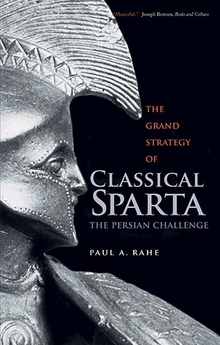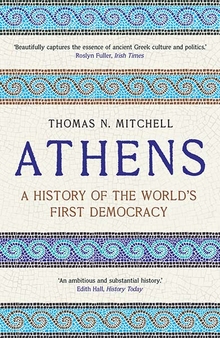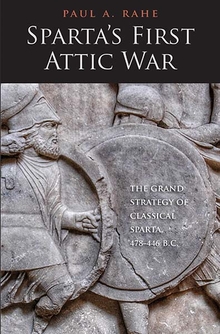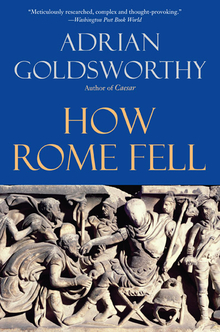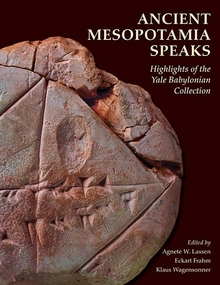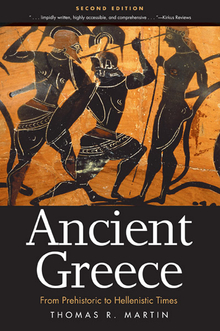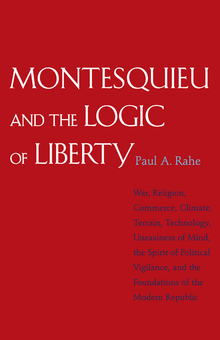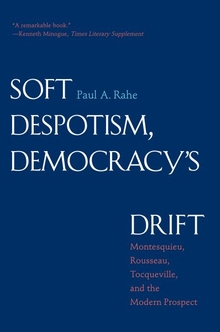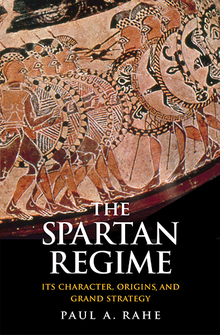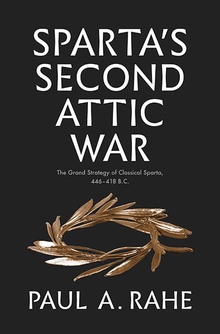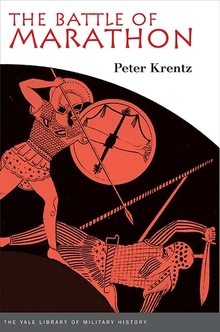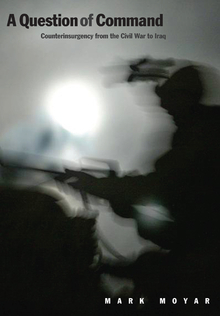The Grand Strategy of Classical Sparta
WARNING
You are viewing an older version of the Yalebooks website. Please visit out new website with more updated information and a better user experience: https://www.yalebooks.com
The Persian Challenge
Paul A. Rahe
A fresh appreciation of the pivotal role of Spartan strategy and tactics in the defeat of the mightiest empire of the ancient world
More than 2500 years ago a confederation of small Greek city-states defeated the invading armies of Persia, the most powerful empire in the world. In this meticulously researched study, historian Paul Rahe argues that Sparta was responsible for the initial establishment of the Hellenic defensive coalition and was, in fact, the most essential player in its ultimate victory.
Drawing from an impressive range of ancient sources, including Herodotus and Plutarch, the author veers from the traditional Atheno-centric view of the Greco-Persian Wars to examine from a Spartan perspective the grand strategy that halted the Persian juggernaut. Rahe provides a fascinating, detailed picture of life in Sparta circa 480 B.C., revealing how the Spartans’ form of government and the regimen to which they subjected themselves instilled within them the pride, confidence, discipline, and discernment necessary to forge an alliance that would stand firm against a great empire, driven by religious fervor, that held sway over two-fifths of the human race.
More than 2500 years ago a confederation of small Greek city-states defeated the invading armies of Persia, the most powerful empire in the world. In this meticulously researched study, historian Paul Rahe argues that Sparta was responsible for the initial establishment of the Hellenic defensive coalition and was, in fact, the most essential player in its ultimate victory.
Drawing from an impressive range of ancient sources, including Herodotus and Plutarch, the author veers from the traditional Atheno-centric view of the Greco-Persian Wars to examine from a Spartan perspective the grand strategy that halted the Persian juggernaut. Rahe provides a fascinating, detailed picture of life in Sparta circa 480 B.C., revealing how the Spartans’ form of government and the regimen to which they subjected themselves instilled within them the pride, confidence, discipline, and discernment necessary to forge an alliance that would stand firm against a great empire, driven by religious fervor, that held sway over two-fifths of the human race.
Paul A. Rahe is the Charles O. Lee and Louise K. Lee Chair in Western Heritage and professor of history at Hillsdale College. He lives in Hillsdale, MI.
"[Rahe] has an excellent eye for military logistics: His account of the practicalities of Xerxes’ vast invasion of Greece (what did those hundreds of thousands of men eat?) is crisp and persuasive."—Wall Street Journal
"Polymath Paul Rahe—classicist, historian, scholar of the European Enlightenment—in this brilliant revisionist study, reminds us how Sparta, not just Athens, saved Western freedom from the Persian aggression—and did so because of its innate courage, political stability, and underappreciated genius."—Victor Davis Hanson, author of The Other Greeks and A War Like No Other
"Western civilization owes much to Athens but also, Paul Rahe argues, to Sparta. He shows how Sparta’s militaristic culture enabled it to defeat the massive Persian invasion of 480 BC, and make the flowering of ancient Greece possible."—Michael Barone, Resident Fellow, American Enterprise Institute
"The level of learning demonstrated here is high and the mastery of the source material and scholarship impressive."—Thomas Figueira, Rutgers University
"Rahe’s book, the first in a projected trilogy charting the life of classical Sparta, is intensely well-researched and well-balanced . . . The Grand Strategy of Classical Sparta tells the old stories in a new light, from the Spartan point of view."—Steve Donoghue, The National
"Masterful."—Joseph Bottum, Books and Culture
"Rahe sets the story in a complicated geopolitical context, with a large cast of characters connected through a series of shifting alliances. But his relaxed, even jaunty style and his thorough analysis sustain the narrative and hold the reader’s attention. And his appreciation of the practicalities of ancient warfare—from the challenge of managing large numbers of horses to the difficulty of maneuvering triremes, the chief naval vessels of the era—adds credibility to his accounts of the key battles."—Lawrence D. Freedman, Foreign Affairs
"The degree of originality in this book is remarkable. Its careful, detailed description and analysis of the Spartan constitution is full of keen understandings that help explain Spartan policy, diplomacy, and strategy."—Donald Kagan, author of The Peloponnesian War
"[Successfully] provide[s] a mostly narrative history (with some fine analysis) of Spartan and Persian actions up to and including the Persian Wars."—Timothy Doran, Bryn Mawr Classical Review
“A serious scholarly endeavor.”—Eric W. Robinson, American Historical Review
“Rahe powerfully illustrates. . . that this regime determined the character and limits of Sparta’s domestic and foreign policy.”—Susan D. Collins, Review of Politics
“[Rahe] has now published four volumes in his history of Sparta . . . Each book is thoroughly readable, and in many cases becomes a page-turner as the excitement of the events Rahe relates is undiminished after 2500 years . . . A tremendous series of books.”—Dr. Cliff Cunningham, Sun News Austin
ISBN: 9780300227093
Publication Date: March 28, 2017
Publication Date: March 28, 2017
432 pages, 6 1/8 x 9 1/4
44 b/w illus.
44 b/w illus.

